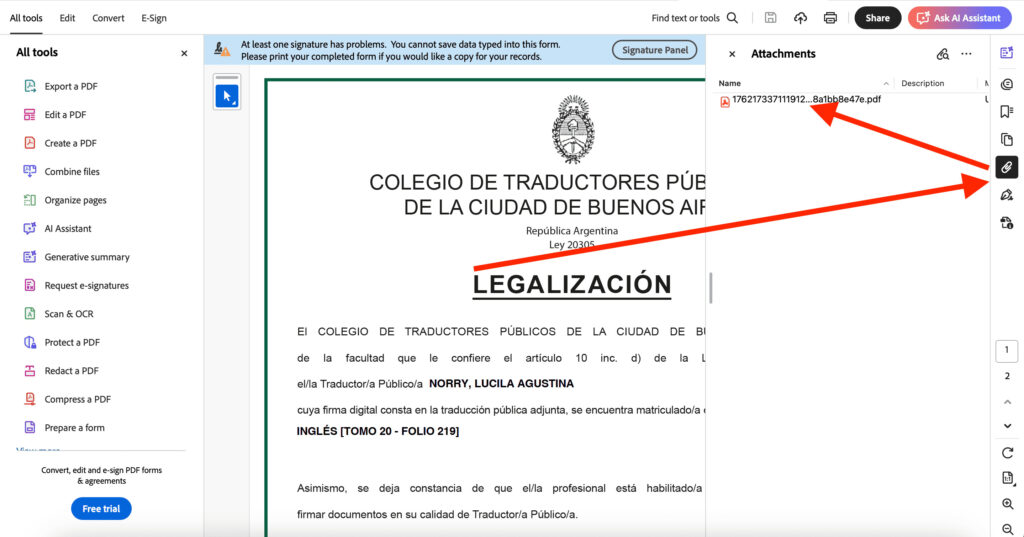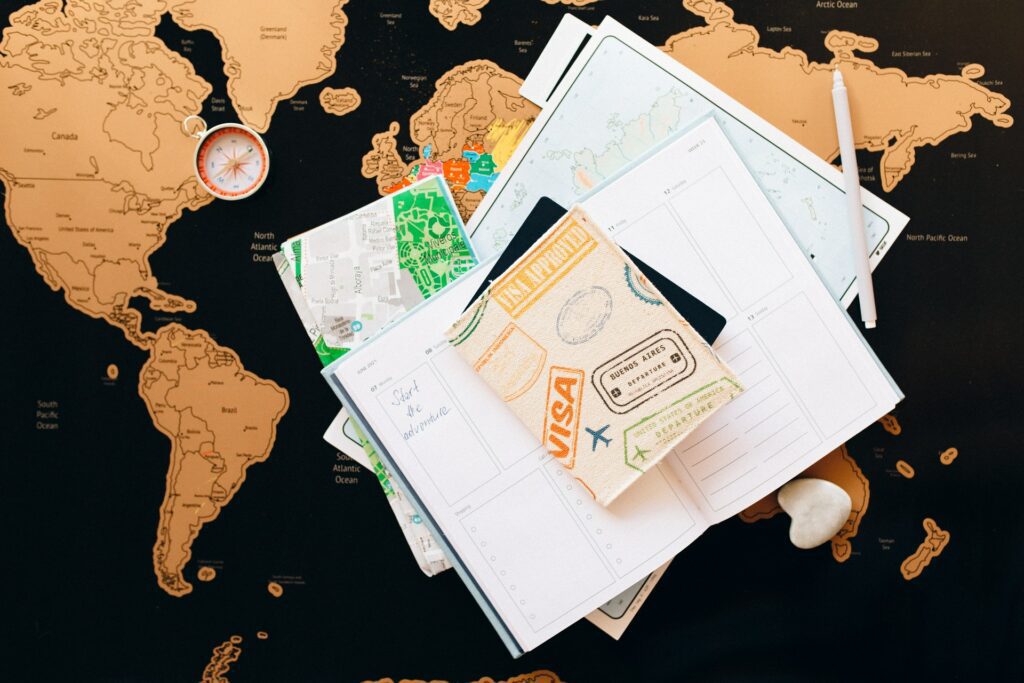Phone: WA: +54 9 3814 45-9254
How to Translate and Verify Translation for Argentina Immigration 2025
If you’re planning your immigration to Argentina or looking to move to Argentina long-term, one essential step is preparing all your legal documents in compliance with the National Migration Directorate requirements. This includes certified translations, apostilles, and proper legalization to support your residency or entry visa application.
Important Note: Translations Must Be Done in Argentina
To clarify, for immigration to Argentina, all translations, if it is in a foreign language, must be translated into Spanish by a national sworn public translator (traductor público) registered with the Colegio de Traductores Públicos. Translations done abroad, even if notarized or certified, are not accepted by Migraciones for residency or entry visa applications.
However, while Argentine consulates in some countries may accept foreign translations for limited purposes, these are not valid for the official residency process inside Argentina. Migraciones has a strict requirement that all translated documents be certified and legalized by a translator registered with the Colegio de Traductores in Argentina.
Translation Fees & Quotation Process
In particular, certified translations may vary in cost depending on several factors related to your immigration paperwork for Argentina, including:
– Type of document
– Length (word count)
– Content complexity
– Urgency of delivery
To ensure accurate pricing, we require a clear scan or photo of each document before providing accurae quotation.
Fee Structure Highlights:
Average fee to give you an estimate idea: approximately AR$50,000 (An Accurate quotation will be sent only after you provide an apostille of your documents. Detailed and up-to-date translation fees can be checked online via the Colegio de Traductores Públicos at:
https://www.traductores.org.ar/matriculados/aranceles-orientativos/
Standard page unit: Up to approx. 500 words
Urgent service: May involve extra costs
Monthly updates: Fees are adjusted based on local translator rates and workload
These translation fees apply to essential documents for Argentine residency, such as birth certificates, affidavits, police clearances, etc.
What Does Legalization of Translation Mean?
In other words, as discussed above, all translations for immigration purposes in Argentina must be carried out by a certified translator who is registered with an authorized translation organisation in Argentina. Once the translator completes the translation, they are required to submit the work to the Colegio de Traductores Públicos to have it verified, attested, certified, or legalized. Nationals of different countries may use various terminologies for this process, but in Argentina, it is specifically referred to as the legalization of the translation.
Important Note:
On the other hand, please do not confuse this with the legalization of original documents, which must be completed before translation, typically through an apostille or Legalization at the Ministry of Foreign Affairs in your home country.
The legalization of the translation is a separate process; it’s an additional legalization that happens after the certified translator has completed the translation.
Examples of Translation & Legalization of Personal Documents
For budgeting purposes, the numbers provided below are for example purposes only! Each applicant’s document structure and content may vary. This information is intended to help you make a preliminary financial estimate and assist you in budgeting for your successful immigration to Argentina.
Below is a breakdown of commonly required translated documents for residency in Argentina, along with the estimated fees:
| Document Type | Notes | Estimated Fee (AR$) |
|---|---|---|
| Affidavit of Name Change | Apostilled | 50,000 |
| Police Clearance | 50,000 | |
| Police Clearance – Dead Name | Apostilled | 50,000 |
| Birth Certificate | Apostilled | 50,000 |
| Sponsorship Letter | Apostilled | 58,000 |
| Gazette Notification | Apostilled | 180,000 |
| Bank Balance Statement | Apostilled | 62,000 |
| Financial Support Affidavit | Notarised | 58,000 |
| One and the Same Name Affidavit | 50,000 | |
| Total Estimated Cost | AR$ 608,000 |
These documents play a key role in relocating to Argentina, particularly for those applying for temporary or permanent residency through family reunification, rentista residency, or student permit pathways.
Translator Signature Legalization
Once translated, all documents must be signed by a certified translator in Argentina and legalized by their professional registration body, called Colegio de Traductores.
A translator registered in Buenos Aires must legalize signatures through the Colegio de Traductores Públicos de la Ciudad de Buenos Aires (CTPCBA).
Legalization Options for Verifying Translated Documents
1. Digital Legalization
– Does not require physical documents
– Accepted by Dirección Nacional de Migraciones
– Convenient for those applying for Argentine residency from abroad
Drawback: May not be valid for other legal or institutional uses
Two service levels available:
– Regular digital legalization – Completed in approx. 48 hours: AR$21,000
– Urgent digital legalization – Completed in approx. 3 hours: AR$31,500
How to View the Digital Translation in Adobe Acrobat

To open it, you need to have Adobe Acrobat downloaded to your laptop, click the attachment on the right side panel, and then click the translation icon, as shown in the image.
2. Hard Copy Physical Legalization
– Requires original documents shipped directly to the Translator (e.g., via DHL)
Each original document must be attached to its respective translation in order to be legalized. The physical legalization fee for each document is AR$24.000 (the legalization takes around 20 minutes). You can check this at the website: https://www.traductores.org.ar/matriculados/legalizaciones/
In case of physical legalization, translators need the original documents to attach them to the translations. You can send them to a translator via postal mail or delivery service to their address in the City of Buenos Aires.
Whether you’re applying for Argentine citizenship, an entry visa, or Argentine temporary residency, it’s important to choose the right legalization type.
Jurisdictional Rules: Where to Translate?
In Argentina, translators are regionally assigned. This is critical to avoid delays in your Argentine residency process:
– Documents translated in Córdoba can only be used for applications submitted in Córdoba.
– If you plan to submit documents in Buenos Aires, they must be handled by a translator registered in Buenos Aires.
Submitting documents outside the proper jurisdiction may result in rejection or application delays.
Need Assistance?
If you’re unsure about:
– Which translator jurisdiction applies to your case
– Whether you need a digital or hard copy legalization
– Which documents need apostilles or notarization for your immigration to Argentina
– We’re here to help. Our team is experienced in handling immigration paperwork for Argentina, guiding individuals and families through every step of the move to Argentina—from document preparation to legal compliance.

